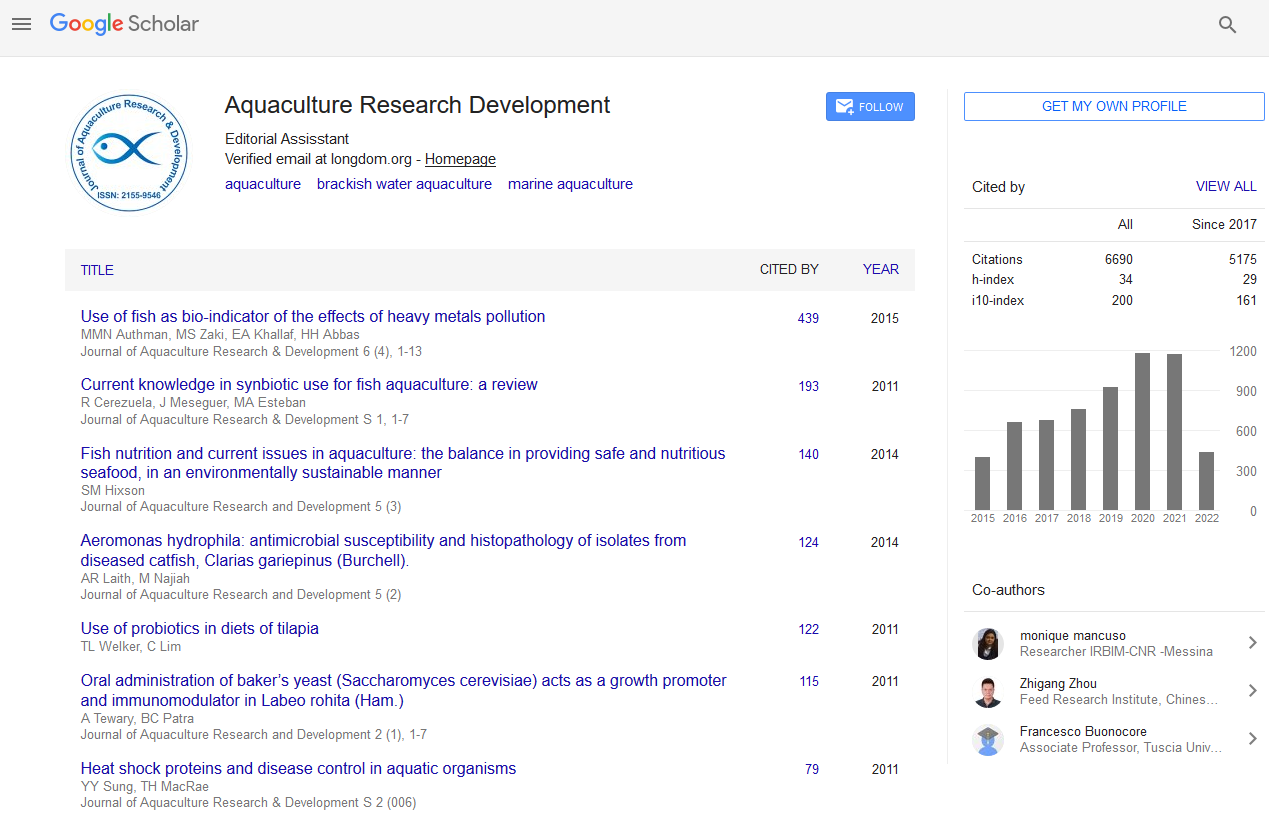PMC/PubMed Indexed Articles
Indexed In
- Online Access to Research in the Environment (OARE)
- Open J Gate
- Genamics JournalSeek
- JournalTOCs
- Scimago
- Ulrich's Periodicals Directory
- Access to Global Online Research in Agriculture (AGORA)
- Electronic Journals Library
- Centre for Agriculture and Biosciences International (CABI)
- RefSeek
- Directory of Research Journal Indexing (DRJI)
- Hamdard University
- EBSCO A-Z
- OCLC- WorldCat
- Scholarsteer
- SWB online catalog
- Virtual Library of Biology (vifabio)
- Publons
- MIAR
- University Grants Commission
- Euro Pub
- Google Scholar
Useful Links
Share This Page
Journal Flyer

Open Access Journals
- Agri and Aquaculture
- Biochemistry
- Bioinformatics & Systems Biology
- Business & Management
- Chemistry
- Clinical Sciences
- Engineering
- Food & Nutrition
- General Science
- Genetics & Molecular Biology
- Immunology & Microbiology
- Medical Sciences
- Neuroscience & Psychology
- Nursing & Health Care
- Pharmaceutical Sciences
Abstract
Impact of Climate Change on the Socio-Economics of Aquaculture in the District of Noakhali, Bangladesh
Mehedi Mahmudul Hasan and Shuva Bhowmik
The study examined the role of technology to aquaculture farmers vulnerable to climate change and the study also identified common categories of aquaculture practices in the coastal district Noakhali, Bangladesh and the vulnerabilities associated with such aquaculture practices. The study used extensive field visits, interviews with the key informants of regional fisheries and livestock development component (RFLDC) and farmers, personal communications, questionnaire survey and focus group discussion as the main procedures to collect data and information. The study found four common categories of aquaculture in the mainland, accreted and newly accreted lands of Noakhali and characterized those with technology level, size, dependencies, markets, ownership, species mix, constraints and vulnerabilities to changing climate. Average net returns from the technology induced aquaculture in community based ponds and waterlogged paddy lands were 905.33 and 362.78 USD/ha/year respectively. The study found the pond aquaculture in the newly accreted lands more vulnerable to climate change than other types. RFLDC, which is a joint collaboration project of Government of Bangladesh and Danish international development agency (DANIDA), had been involved in extending technology to the poor farmers for sustainable development of the farmers’ livelihood through agricultural activities. Farmer Field Schools, Community Based Organizations (CBOs), CBO associations and Union Parishad have been found to be playing very effective role for the development of aquaculture.


